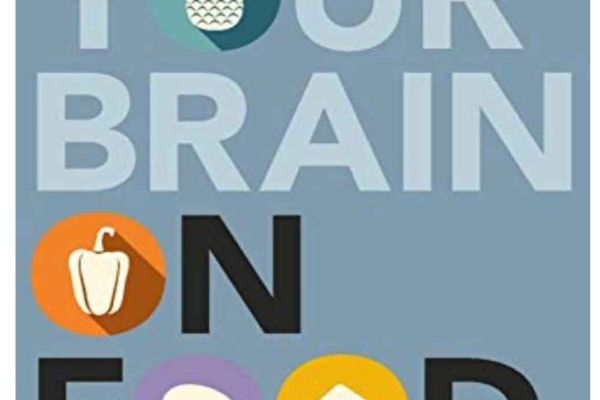
Intelligence
Reading a road map upside-down, excelling at chess, and generating synonyms for "brilliant" may seem like three different skills. But each is thought to be a measurable indicator of general intelligence or "g," a construct that includes problem-solving ability, spatial manipulation, and language acquisition that is relatively stable across a person's lifetime.
IQ—or intelligence quotient—is the standard most widely used to assess general intelligence. IQ tests seek to measures a variety of intellectual skills that include verbal, non-verbal and spatial. Any person from any walk of life can be highly intelligent, and scoring high on one sub-test tends to correlate with high scores in other tests, though this is not always the case. IQ tests compare a person's performance with that of other people who are the same age—what’s known as a normative sample.
Research has shown that IQ is generally strongly correlated with positive life outcomes, including health and longevity, job performance, and adult income. It is also protective in ways that are not fully understood: People with high IQs seem to be at an advantage in coping with traumatic events—they are less likely to develop full-blown PTSD and more capable of overcoming it when they do—and may experience less rapid decline during the course of Alzheimer's Disease.
Contents

There may be. Research suggest that people who are high in the personality trait of openness tended to be more mentally flexible and verbally fluent and more likely to take creative, unconventional approaches to solving problems. Extraverted people were also more likely to score higher on test of verbal fluency because they tended to talk more, and be less concerned about mistakes. And people higher in the trait of conscientiousness tend to perform better on memory tasks because they’re generally better organized and willing to work harder.
No, not even close. This pervasive pop-culture myth—one survey found that 50 percent of science teachers believed it was true—has no basis in reality. We use 100 percent of our brains every day, as is clearly shown by functional magnetic resonance imaging scans. Neurons only make up 10 percent of the cells in our brains but the other 90 percent work full-time, maintaining homeostasis, providing structural support, and removing pathogens. The source of the famous notion is pioneering psychologist William James, who once write that “we are making use of only a small part of our possible mental and physical resources,” and he was right—but our untapped potential has little to do with our brain cells.
No, a larger brain does not make a person more intelligent. Some studies have suggested, for example, that a larger brain may contribute as much as 6 percent boost to one’s intelligence, but this research has come into question, and some experts doubt that a larger brain would bring any advantages because it would necessarily demand greater energy consumption, potentially contributing a drag on a person’s resources. Considering all animals, including humans, there is a theory that the size of a creature’s brain relative the size of their body may confer a higher level of intelligence, though—and human brains constitute up a higher ratio of our body size than do the brains of many other animals.
The theory known as “the Flynn effect” maintains that average IQ scores have and will continue to rise over time, primarily due to changes in our environment—better diet and greater access to education and information, for example. But in recent years, IQ scores appear to declining—one-half to two points per decade—possibly a reflection of a decline in those same environmental factors.
In the early 1980s, Harvard researcher Howard Gardner proposed that, along with IQ, there may be multiple kinds of intelligence that people possess in varying quantities, including visual-spatial, logical-mathematical, and interpersonal (emotional) intelligence. According to this theory, someone high in interpersonal intelligence would likely excel at cooperating within a group, while someone with high levels of logical-mathematical intelligence would have a heightened capacity to understand numbers, patterns, and logic. But while the concept has gained much public attention— and is often used as part of personality or employment tests—many researchers dispute the idea of different intelligences and have criticized Gardner's theory, criteria, and research designs. For example, emotional intelligence cannot be reliably measured through testing as general intelligence can, the critics argue, and so it lacks the power to explain differences between people.
For more, see Emotional Intelligence.

A critical prerequisite for intellectual growth is the idea that one can gain mastery and improve on native ability. While one can indeed improve memory and problem-solving abilities over time via practice or environmental pressure, this does not mean that one is becoming "more" intelligent. IQ scores do not fluctuate markedly over the course of a person's lifetime, and they tend to consistently correlate with other tests, such as the SAT. Many supplements and computer programs are marketed as brain boosters, but there is little long-term evidence to support those claims.
One reason people attend, and stay in, school through high school, college, and beyond, is to become more intelligent. And while additional years of schooling should increase one’s store of general knowledge and career prospects, until recently research had not concluded that formal education also increased one’s IQ. But then a meta-analysis determined that each additional year of schooling appeared to raise IQ by one to five points. Exactly how schooling boosts IQ is not clear, though, nor is whether or how the effect accumulates over many years of education. But experts point to the study as a sign of a more crucial truth: that an individual’s intelligence can change over time.
The right ones seem to be able to. Successful players of games requiring strategy, creativity, and teamwork, research finds, tend to have a higher IQ than others. A similar connection between IQ and gaming success was not found in studies of first-person shooter-type games that rely on hand-eye coordination. But other studies find that playing certain games can actually help boost IQ. Studies that involved popular puzzle-based strategy games, particularly those involving complex, changing environments, led to gains in problem solving, spatial skills, and persistence. Significantly, such results were not found in studies of so-called “brain-training” games marketed as cognitive boosters.
A growing body of research supports the idea that exercise can help boost cognition, especially moderate-to-vigorous aerobic exercise. In one example, researchers found that, for older people, time spent in moderate-to-vigorous cardiovascular exercise was positively correlated with increases in “fluid” intelligence—processing speed, memory, and reasoning. In the same study, sedentary time was correlated with boosts in “crystallized” intelligence, such as vocabulary development. Light physical activity, however, provided little cognitive benefit.
Stimulants like methylphenidate (Ritalin) and mixed amphetamine salts (Adderall) deliver proven benefits for many people with ADHD. But the question of whether such stimulants could improve cognitive ability is highly controversial. Recent research, however, suggests that the drugs do not deliver any cognitive enhancement—aside from an increase in confidence, interest, and energy in people’s tasks. A boost in optimism when tackling a difficult assignment is not the same as a boost in intelligence, but it can help deliver better results by motivating people to deploy their existing cognitive resources more vigorously.

While most research finds very little difference in the mean IQ between men and women, men are overrepresented at the tails of the distribution. This means that more men than women have scores that reflect severe retardation, and more men than women score in the profoundly gifted or "genius" range. Research shows that men are a lot more likely than women to overstate their intelligence. In one example, 71 percent of men claimed to be smarter than the average person, compared to just 59 percent of women.
There’s a persistent stereotype that people high in the trait of psychopathy are smarter than most others because they are skilled at both presenting a false façade to potential victims and at manipulating targets into doing what they want those people to do. But research shows that this is not the case. In fact, some studies find, psychopaths are generally less intelligent than others, particularly so when it comes to capabilities like recognizing emotions in others. So why do they seem so intelligent and devious? Researchers suggest that it’s because they constantly target people with schemes, to the point that even if their percentage of success is quite low, they do occasionally rope in a target.
No, but many become obsessed with the idea that they could be. Studies of narcissism have found that a belief in their intellectual superiority is often crucial to their identity. Narcissists of the type known as grandiose are highly likely to believe they are smarter than other people; some place an especially high value on IQ testing. Vulnerable narcissists, on the other hand, who tend to be more introverted, insecure, and neurotic, are not as likely to believe that they are smarter than others, but they are more likely than others to find taking intelligence tests to be highly stressful.
It has long been believed that left-handed people are smarter than right-handers, but research does not support the notion. In fact, a meta-analysis of studies including more than 20,000 people found that right-handers had a slightly higher IQ, on average, than left-handers, but the difference was not significant.
This is emerging as a core philosophical question as AI systems increase in power and humans become more concerned about how many aspects of work, decision-making, and even creative production could eventually be turned over to computer intelligence. But there are some tasks humans perform far better, such as image recognition, and humans can also be seen as more flexible and adaptive learners. Some argue that the human propensity to ask original questions sets us apart from machine intelligence, along with the ability to leverage others people’s intelligence while solving problems together.

The vast majority of people claim that they find intelligence to be among the most desirable traits in a potential romantic partner. As with other favorable traits, though, this appeal most strongly influences initial interest in a new partner. Once people begin dating, other factors like personality and conflict style play important roles in determining whether a couple will stay together. But for a certain group, intelligence is their primary erotic turn-on. Some research suggests that these individuals, known as sapiosexuals, may represent a distinct sexual orientation. Interestingly, whether one finds intelligence to be a turn-on does not seem to be determined by one’s own level of intelligence. But for sapiosexuals, looks and even gender may not be as vital a factor in sexual attraction as intelligence.
Generally, yes. Studies of adolescents found that more intelligent individuals were more well-liked by peers than others—although other research finds that more intelligent people tend to like fewer people than others, and to prefer being with other intelligent people. In the dating pool, smarter people may be at an advantage because others’ preference for being with smart people is strongest at the beginning of relationships.
Generally, it’s an advantage, although some research suggests that the most intelligent people may be at a disadvantage. When people were asked to consider whether they would want to date people in different percentiles of intelligence, the favorability rankings increased steadily from the 50th percentile to the 90th, at which point interest declined. This research is consistent with other findings that even the most appealing traits tend not be desired in the extreme.
In surveys, men and women both claim that they are at least as attracted to intelligence as they are to good looks. In practice, especially for men, that is not always the case. The idea that highly intelligent women may be at a disadvantage in the dating pool, research suggests, is no myth: Men tend to shy away from women who are clearly more intelligent than they are. (Women are less likely to have the same reaction to intelligent men.) Experts suggest that intelligent women avoid dumbing themselves down to attract a partner or going out of their way to support a partner’s ego, as in the end those strategies are likely to lead to unfulfilling relationships.














